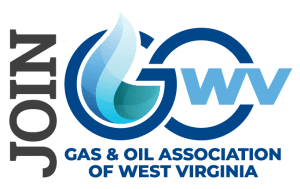
“This industry betters everyone around it,” Governor Jim Justice said to a packed room at GO-WV’s 2024 Winter Meeting last week. Policymakers and industry leaders echoed this sentiment during the two-day conference in Charleston, West Virginia which covered topics ranging from cybersecurity and energy infrastructure to hydrogen development and the essential role of West Virginia natural gas and oil in driving economic growth, environmental progress and energy security.
Experts weighed in on how domestic natural gas plays a key role in the global energy market. The Appalachian Basin specifically, which is America’s largest producing region, comprises about one-third of all U.S. natural gas production. The demand for energy is quickly rising across the world, meaning the supply coming out of West Virginia directly supports America’s ability to meet this demand with clean, affordable and reliable fuel.
West Virginia’s reliable and abundant natural gas is also enabling the growth of the state’s industrial sector, helping it to thrive and provide greater economic opportunity in the Mountain State. In addition to providing crucial feedstocks for manufacturing processes, boosting the state’s natural gas-fired electricity generation would enhance flexibility as demand increases—ensuring residents and other end-users can access electricity at a moment’s notice.
With demand for reliable power expected to rise, natural gas is poised to play a significant role in meeting that demand. Natural gas supplies 40% of the nation’s electricity generation and will capture a majority of demand growth from resource retirement in the coming years; however, this is only possible if policymakers prioritize the growth of accessible and dispatchable fuel sources. In West Virginia, we must use the Grid Stabilization and Security Act of 2023 to advance in-state natural-gas generation to significantly reduce emissions, improve reliability, attract jobs, and continue providing energy savings for West Virginians.
Millions of Americans depend upon natural gas as a reliable, affordable fuel source, and West Virginia is blessed with an abundance of natural resources beneath our feet. With neighboring regions struggling to meet rapidly growing energy demands and being forced to rely on foreign energy imports, it is clear that further natural gas development is required to secure America’s energy independence. West Virginia is well positioned to meet this demand.
Key to meeting demand, however, is pipeline infrastructure to move the fuel from production sites to end-users where it is needed. The Mountain Valley Pipeline (MVP), slated to run from northwestern West Virginia to southern Virginia, for example, will help provide more than 2 billion cubic feet (or roughly one-third of West Virginia’s annual production) to customers in the southeast.
“With technology improvements that the industry has made over the last couple of decades, we have been able to extract a lot of gas. But you have to put it somewhere, and so our storage numbers are full–which has suppressed markets. The MVP will help bring some of that gas to market and allow some competition of energy,” GO-WV President, Jeff Isner, said.
Smart infrastructure investments also boost the viability of other end-use opportunities for Appalachian natural gas and oil. As part of the Biden Administration’s regional hydrogen hub development goals, West Virginia was selected to receive up to $925 million in federal funding to accelerate hydrogen development in the Basin via the Appalachian Regional Clean Hydrogen Hub. With proper infrastructure investments, West Virginia natural gas operators are equipped to scale production to advance hydrogen production. Natural gas is widely recognized as the most cost-effective way to produce hydrogen, and by tapping our energy-rich resources, “the hydrogen hubs will be transformative,” explained GO-WV Executive Director, Charlie Burd “if they can be accomplished as they were intended.”
The bottom-line: West Virginia’s natural gas industry is critical to meeting increased energy demand, powering businesses, schools and homes, and creating good-paying jobs. With the support of sound policies like permitting reform and greenlighting infrastructure development, West Virginia is willing and ready contribute to America’s energy future.

